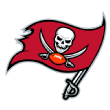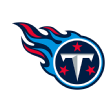Overheard during Super Bowl week: The buzz around Saints QBs, Cam and more

MIAMI -- After seven Uber rides, four parties, countless trips through radio row, two news conferences and plenty of conversations with coaches and players and execs, the best damn NFL notes column in the 305 is finally here, separated by themes that will dominate the league for this week and the coming months.
Yes, the Kansas City Chiefs and San Francisco 49ers are about to meet in Super Bowl LIV, but there's plenty more being discussed here in South Florida this week.
Let's get right to it.
Quarterback carousel about to spin
Most of the league is waiting for clarity surrounding three names: Tom Brady, Drew Brees and Cam Newton.
No one truly knows what the heck Brady will do. Most execs predict a return to New England, but all of Brady's recent actions -- including moving out of the Boston area -- send a clear message: I will leave if you tempt me. By all accounts, Brady is looking forward to being a free agent and all that comes with it: interest from other teams, offers from other teams, maybe even visits to other teams, and also listening to the Patriots' pitch for keeping him. Most people seem to think even Brady doesn't know what he is going to do yet.
Let's assume for now that Brady stays.
Sometime in February is when we will get clarity on Brees, but after talking with several people about this, the two most plausible outcomes are this:
- Retirement. Yes, the rumblings are fairly strong.
- Signing a one-year deal with the Saints while helping friend Taysom Hill become the guy in 2021.
The second option is significant, because sources stress that Brees and Hill are indeed close but that Hill -- a versatile weapon and a restricted free agent -- might not be ready to handle the full responsibilities of NFL quarterbacking just yet.
One more crack at a championship while continuing to develop Hill would satisfy the locker room and an aging but talented defense that is poised for another run at San Francisco.
One expected outcome if Brees returns is that Hill would get a first-round tender -- a way for the Saints to dissuade teams from submitting an offer sheet -- and Teddy Bridgewaterwould become a potential starter elsewhere.
We're told that retirement is a definite option for Brees, that it isn't an empty threat to try to leverage the Saints into a contract. But we're also told, in no uncertain terms, that if Bress does play again, it would be for only New Orleans. He has said as much publicly.
Then there's Newton, whom the Panthers want to see work out on the field in March when healthy, a source said. A full evaluation will help them make a decision on his future, one that hasn't been made yet. "They want to at least give him a shot, see where he's at," the team source said. "Then we'll see what happens."
That $19.1 million salary-cap savings will be tempting for a trade. But the Panthers know they probably aren't getting Joe Burrow, and they like 2021 quarterbacks Trevor Lawrence and Justin Fields better than the rest of the 2020 crop.
Letting Newton play out the last year of his deal is not a far-fetched scenario, even if the Panthers draft a quarterback as his eventual replacement and give that young QB a developmental year.
Three other newsy items on quarterbacks
The Bucs' Jameis Winston, coming off a 33-touchdown, 30-interception season, will join Brady, Brees and others on the free-agent market in March. Bruce Arians was noncommittal at the end of the season about Winston returning to Tampa in 2020.
Here's what one NFL exec said this week about the former No. 1 overall pick: "I don't see how you can pay him. It would have to be pretty reasonably low if they did. You can't give him big money based on the way he played. He won't have a market."
The Titans' Ryan Tannehill, who took over the starting job from Marcus Mariota(the No. 2 pick in the same draft as Winston) and helped Tennessee reach the AFC Championship Game, is another free-agent domino this offseason. Here's what another NFL exec had to say about the Titans' looming decision: "He had a great year, but [the] scheme helped him a lot. He's going to get his money from Tennessee, but they can't go crazy. Things have to be perfect around him to perform like that."
Sources say the Titans' front office has yet to decide on the 31-year-old Tannehill in terms of whether he is worth the price of a long-term deal or even the franchise tag, especially with star running back Derrick Henryalso set to become a free agent.
Oregon's Justin Herbert, a potential top-10 pick in April's draft, impressed at the Senior Bowl last week, answering questions about his leadership. One exec said he asked receivers on the South team which quarterback had the best leadership qualities during the week, and most of them said Herbert, in part because he was encouraging after bad plays. And Herbert was eager to help send in hand signals for the offensive line when he wasn't in the game, which the coaching staff saw as a positive.
ESPN's Mel Kiper Jr. projected the 6-foot-6 Herbert to the Chargers at No. 6 in his 2020 Mock Draft 1.0.
'There's no way this is a bad game'
This Super Bowl matchup has everyone hyped for a variety of reasons: What Patrick Mahomes will do, what Nick Bosa will do, what elite playcallers Andy Reid and Kyle Shanahan will do with two weeks to prepare.
It all comes down to setting a tone early.
"I think San Francisco will hit them early on with the run," said one Pro Bowl player appearing on radio row this week. "With all those motions and shifts, it's hard to contain what they do. Kansas City knows it's coming, but they are so good at what they do that it's not as easy as saying, 'Let's see if Jimmy G[Garoppolo] can beat us.'"
But that's what several defensive players believe the Chiefs should try to do: Sell out on the run and give Garoppolo passing lanes; and if he takes advantage, you stop him in the red zone by condensing the field and forcing him to throw outside.
The Chiefs need the pass rush of Frank Clark and Chris Jones in a big way, but the concern one exec has with that is Jones dominates, but in spurts -- the totality of his game film is not great -- while Clark goes so hard each snap that he must pace himself to not get gassed.
On the other side, Mahomes must stay patient. Having two weeks to prepare helps San Francisco stay in front of Tyreek Hill -- or at least try.
If there's one knock on Mahomes, it's that he looks for the big play too often, players and coaches say. But he is so good that he offsets that impatience with the spectacular.
"With the 49ers' pass rush, and especially with the big guys in the middle [DeForest Buckner and Arik Armstead]getting high and inside in the middle, their defense can afford to drop back and make Mahomes dissect them from the pocket," another NFL player said. "If he's patient, he'll be the MVP."
The latest on the NFL collective bargaining agreement
The collective bargaining negotiations between the NFL and the NFLPA have been a front-and-center topic, as the players' union gathered all of its team representatives (minus those from the 49ers and Chiefs) for a meeting on Thursday to update the status of the talks and discuss strategy. Players are weighing whether to accede to the owners' desire for an expanded regular season, and several have spoken out against it in private and in public.
Sources on both sides of the discussions have expressed concern this week that the deal, which they have been discussing since April, could fall apart over the issue of playing 17 regular-season games. Enough work has been done on other issues that a deal could come together quickly if the two sides could agree on the issues of expanded season and players' share of revenue, but issues are major enough to sink the deal. The current CBA expires after the 2020 season.
What we've learned is that the owners' proposal wouldn't expand the season from 16 to 17 games immediately, but it would give owners the option of expanding the season to 17 games at some point during the life of the deal. Having that option gives the league a potential leverage tool in negotiations with its TV network partners, and don't think for a second that those upcoming negotiations aren't hanging over the CBA talks. Owners would prefer to have a CBA done before they do the TV deals, since 10 more years of ensured labor peace would be a strong selling point to the networks. There is some concern on the players' side that, if one or more of the new TV deals get done before a new CBA is complete, leverage would shift toward the owners since they would have a guaranteed revenue stream in hand in the event of a work stoppage.
Earlier in the week, NFLPA executive director DeMaurice Smith told ESPN, "If we want to hold out and get everything we want, that's probably going to mean a two-year strike." Smith wasn't actually threatening a strike, but rather trying to send a message to his players about the nature of collective bargaining and not letting dreams of a perfect deal get in the way of doing a good one.
Ultimately, Smith works for the players, and he was saying he would be willing to orchestrate a strike if that is what they wanted to do. But if that's on the horizon, Smith said, players must be financially prepared to endure it. The union has been telling players for the past three or four years to save their money and reduce their debt in anticipation of a potential work stoppage, but there is no way to know for sure how many of them have done that.
In the last negotiation, one of the players' big wins was a reduction in the amount of time they are required to spend at team facilities in the offseason. And sources say this new deal would include similar quality-of-life improvements -- specifically, new rules governing the amount of contact teams can have during training camp practices and how much time players are required to be on the field during training camp.
The deal also would include changes to the drug policy and the discipline policy, as well as improvements in player benefits. For the owners, the deal would enable them to take money off the top of the revenue pile to use for stadium construction and improvements, which they can no longer do under the current deal because of rules that prohibit the players' share of revenue from falling below 47%. In short, there are aspects of the proposed new CBA from which both sides would benefit. So while the current deal has more than a year left on it, there is some sentiment from both sides to do a deal now so that the new stuff would kick in for this offseason and the 2020 campaign.
One low-key issue that is hugely important to players is forcing owners to abandon the funding issue that hurts guaranteed money. In the current setup, all future guaranteed dollars have to be put in a league escrow account. Teams might put up to $60 million at a time in escrow to cover big-money deals on their books.
But teams hide behind funding during negotiations as a reason they can't dole out more guarantees, which is why you still see five-year contracts with minimal money attached. It is an archaic rule that was instituted before big television money flooded in, from a time when there was a legitimate chance of some teams not being able to make payroll. Clearly, those days are gone.
Sources expect players to rework how players are paid: Instead of 17 paychecks through the course of the season, they would be paid over 52 weeks like most standard salaries.
Concern about Antonio Brown
This has been a big theme all week: Players are concerned privately; ex-teammates such asJuJu Smith-Schuster who once beefed with Brown are concerned publicly; and Roger Goodell wants the league to help get him "on the right track."
Many people around the league would like to see Brown in a better place. We spoke to Brown's brother, Desmond, who says he believes his brother needs to get out of Miami, where there is too much trouble for him.
And if Brown wins his NFL grievances, many more lawsuits from past employees over Brown's lack of payment for services could be on the way, a former Brown confidant said.
On the coaching front ...
- The Philadelphia Eagles are still looking to fill an offensive coordinator position, but it is a tricky sell to some aspiring coaches because the Eagles have made it clear that head coach Doug Pederson isn't giving up playcalling duties. The Eagles are looking specifically for a passing-game specialist, so keep an eye out for quarterback coaches on other staffs for whom such a role might represent a promotion.
- 49ers passing game coordinator Joe Woods is still on track to be named the Cleveland Browns' defensive coordinator shortly after the game ends, according to a source. Neither side wanted to be a distraction during game preparation, and though the 49ers could make a late push to keep Woods, it's understood he's taking the job to reunite with Kevin Stefanski. The two worked under Brad Childress in Minnesota.










